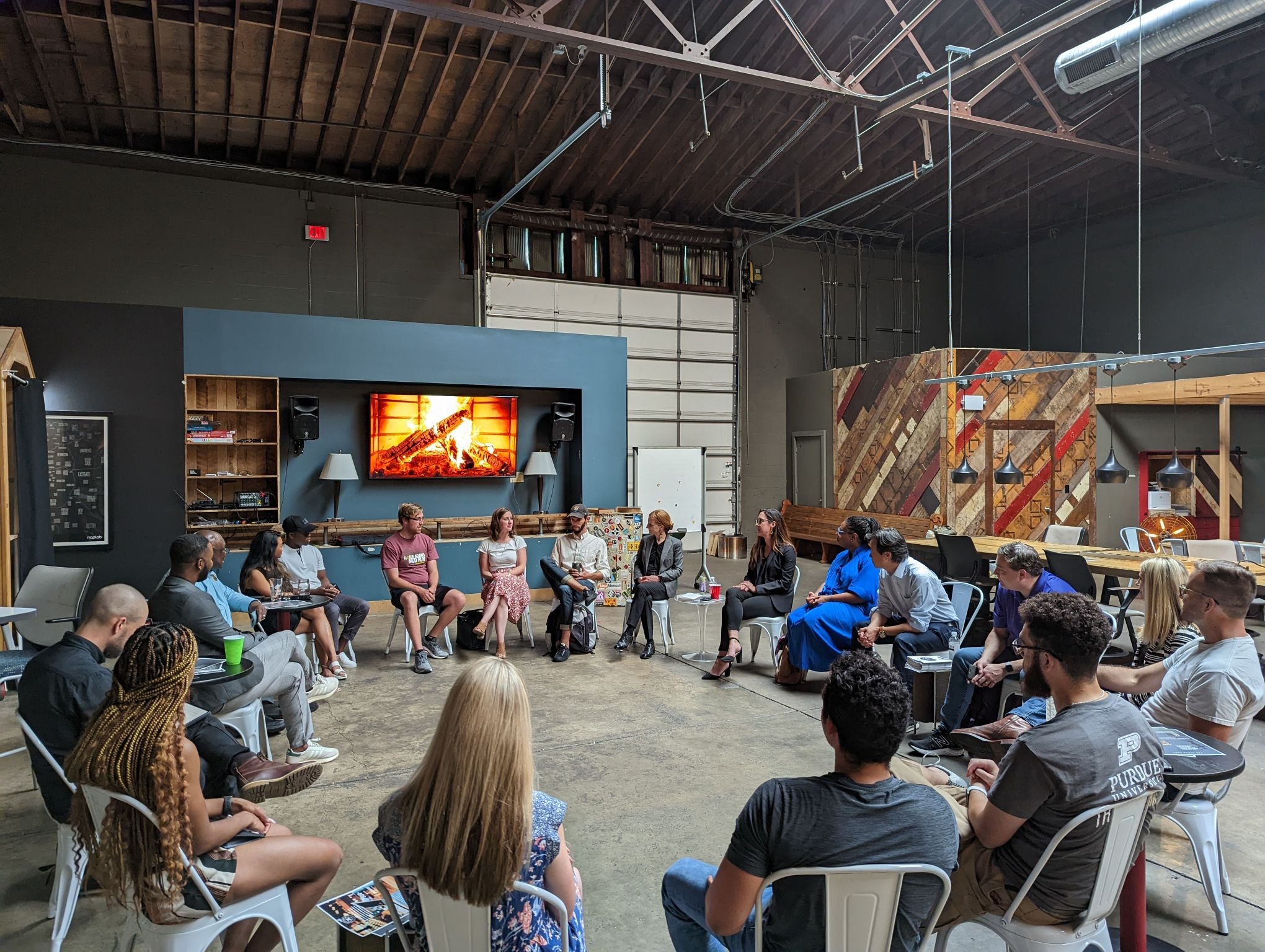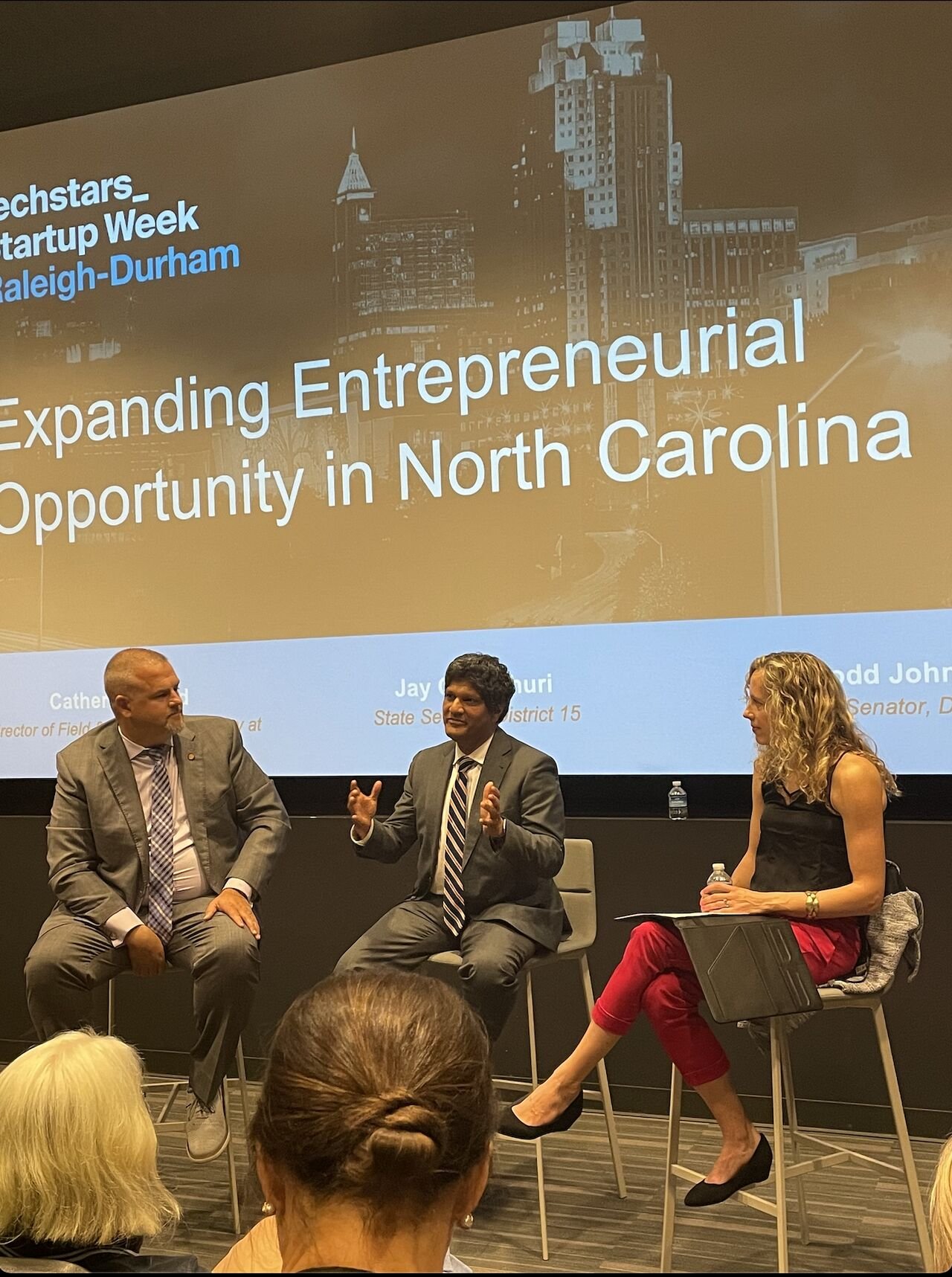Three years ago, SCN Member Victor Hwang launched a new initiative and organization based on a single, but powerful premise: Everyone has the right to pursue their entrepreneurial dreams… a Right to Start.
According to the Right to Start website,
“To fulfill that right, we must unleash entrepreneurial opportunity for everyone. Regardless of race, place, or background. Across every community. When the Right to Start is realized, prosperity spreads through homegrown jobs, higher incomes, stronger communities, lower inequality, and less poverty.”
Fast forward three years later and that mission has translated into working on over 40 pieces of policy at the state level in 14 states to lower barriers for entrepreneurs to start and make it easier for businesses to grow. Right to Start works on the federal, state, and local level on policy and advocacy initiatives and has developed quite the grassroots community of ecosystem builders who want to see policy change in support of entrepreneurship. The Right to Start footprint is 28 states and D.C.
Right to Start Policy Work
Right to Start’s Head of Government Affairs, Jason Grill, has been very busy over the last few years building relationships and educating policymakers on the importance of entrepreneurship and new, young companies to an economy. Work has been done on the local, state and federal level.
“Legislation has passed with Right to Start policy recommendations in seven or eight states at this point, maybe even more. These are very bipartisan ideas that individuals from both sides of the aisle are embracing. We hope to be in at least 15 states in 2024 and have some of these policy recommendations signed into law,” says Jason Grill.
One of the recent policies that was filed in North Carolina would defer the payment of business taxes for young companies with net incomes of less than $5,000.
If you’re headed to the SCN Policy Summit, you’ll hear more about Right to Start’s policy recommendations and how you can get involved.
“We’ll cover three of our key issues: Office of Entrepreneurship, 5% to Start, and Zero Barriers to Start,” says Jason Grill.
One of the most effective and widely supported policy recommendations they’ve seen is the Office of Entrepreneurship.
“Within State governments, there’s not really a go-to person or place to truly understand and advocate for entrepreneurs and their issues. Our goal is to share the importance of entrepreneurs and how they create the most net new jobs. An Office of Entrepreneurship, could have as little as one FTE, which would be a liaison for entrepreneurs within state government, and do a number of different things including: reporting back on what’s working, what needs improvement, tracking state government contracts going to new,young companies, monitor, updating and sharing policies that affect entrepreneurs, and serve as a one stop shop,” says Jason Grill.
Overall, these policy recommendations are aimed at lowering barriers to entrepreneurship and expanding entrepreneurial opportunity. Some examples include lowering government fees for new businesses, reducing red tape, eliminating burdensome requirements, permits and licensing, and fixing confusing forms. Right to Start's Field Guide for Policymakers details policy recommendations and how to fix barriers with data from entrepreneurship surveys and more information.
Right to Start Advocacy Work
Another big piece to the work at Right to Start is advocacy. Right to Start has 14 Advocates in 8 states, who serve as grassroots organizers, elevating entrepreneurship as a civic priority and helping bring change in their local community. In addition, 25 Ambassadors serve, from across the country (in 19 states & Washington D.C.), who are opinion leaders in their state and have strong connections with state policy makers and are passionate about creating change. Many of the organization’s Ambassadors are also members of Startup Champions Network.
Advocates are the eyes and ears of the community. They meet with entrepreneurs in their ecosystem to learn and document their barriers and host Right to Start events like reverse roundtables to connect local elected officials with entrepreneurs whose voices are not amplified. Ambassadors amplify the work of the organization, connect the team with key leaders in their ecosystem and work with them on introducing Right to Start recommendations. Catherine Read. Director of Field & Campaign Strategy manages and coordinates the work of both the Ambassadors and Advocates.
To further grow its public engagement and possibility for policy change on the local level, this year, Right to Start is working with two pilot Chapters, in Peoria, Illinois and Richmond, Virginia, and partnering with the Institute for Justice (another Summit speaker) to highlight how local communities can benefit from reducing barriers to entrepreneurs.
“We are partnering with passionate entrepreneurs in those communities to bring the issues to local policy makers. The Institute for Justice does a lot of work using research to prompt cities to streamline their bureaucracies around starting a business. They produced the report “Barriers to Business,” that has been really a valuable tool in our advocacy work,” says Catherine.
If you’re not familiar with the Barriers to Business report, you may be familiar with this recent article which highlighted the report’s findings: “Opening a Restaurant in Boston Takes 92 Steps, 22 Forms, 17 Office Visits, and $5,554 in 12 Fees” (written by Right to Start Founder, Victor Hwang).
“Institute for Justice will be doing some of their data analysis in our two chapter cities, so that our Advocates and Chapter Leaders will have the ability to use that data along with the stories they capture from entrepreneurs to present to policy makers. Cities will clearly see how many obstacles they put in the way of people who are trying to open a business of benefit to the community, whether it be a food truck, barbershop or nail salon. It’s really eye-opening for cities that don't realize how many of these laws have built up on each other over the years and how complicated it has become to start a business,” says Catherine.
Digital platform
To connect all of this great work and allow supporters to interact, share ideas and become more effective in their policy outreach, Right to Start has launched (as of June 1!) a digital platform called “We are All Starters.” It will be a place where Ambassadors, Advocates, Chapters, and general supporters can gather to talk to each other, go through training, and view resources, like policy papers.
“It's really going to be the one-stop shop of engagement for those who care about these issues, want to talk to other people, and find out more information,” says Catherine.
How to get involved
We’ll learn much more about Right to Start at the Policy Summit, but if you’re not attending or are just ready to get involved, here are some ways to support them.
Partner with Right to Start on a Chapter in your ecosystem
Become an Ambassador
Sign the Statement of Principles
Join the Digital Community
Check out their Field Guide
“Our Statement of Principles is for organizations or individuals to show their support. When we have 10,000 signatures, we’re going to present it to all 50 Governors, the candidates for President, and other policy makers at the local and state level so we can show the depth and reach of support for the policies we are advocating,” says Catherine.
“The importance of policy, not only on the federal level, but also on the state and local level, is just so huge for entrepreneurs. This is something that hasn’t really been pushed until Right to Start came along. Even though we are at the infant stage, we're seeing great momentum. Now we’ve gotta continue to make people understand how important these issues are because not everyone's talking about entrepreneurship. It's not an issue you hear about every day in political discourse. We think that needs to be changed because it is so important to our economy and the future of America,” says Jason Grill.











